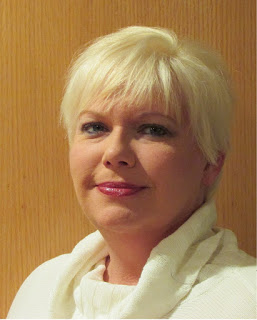Melissa Weimer, Production Planner at SPI Lighting

Melissa Weimer, Production Planner at SPI Lighting
#HearHerStory / @womeninmfg

At Women in Manufacturing, we are committed to supporting women in the manufacturing sector. We firmly believe that mentorship and community-building will help attract and retain women in manufacturing. As part of our mission, we feature on our blog the stories of women we admire who are currently working in manufacturing. The following is the latest installment of our "Hear Her Story" series.
Please tell our readers a little bit about your job and what your work looks like every day.
I am a production planner for the fabrication department at a lighting fixture manufacturing company. My day begins with entering fabrication orders for upcoming customer orders. I take care of the capacity planning for our fabrication department; I schedule work on our saw, lathe, CNC vertical machining center, CNC punch press, CNC brake press and CNC router, as well as our plastics department and metal finish area. Our company does a great deal of custom jobs, so I also project manage the build-ahead orders to ensure fit and function before we run the main order. I am also responsible for purchasing all raw sheet stock for our fabrication department. The majority of my day is spent ensuring that all machines are running at capacity and we have the material on hand to ensure on-time delivery to our internal customers.
How did you arrive at your current position? What attracted you to a career in manufacturing?
I grew up on a dairy farm in MN, so I was always around machinery and helping my dad repair and restore machinery. I believe this created the foundation of my technical and mechanical aptitude. When I was 19, I found myself at a crossroads, and I decided to apply for a job at an exhaust manufacturer. This was where my true love for manufacturing started. After five years of being a machine operator, I decided that I was ready to move into an office position. I went to work for a boiler manufacturer and I worked for them for 14 years. After starting as an administrative assistant, I took a lot of chances, said “yes” to many opportunities and got my degrees. For the last 4 ½ years I was there, I was in sales and worked as a product manager.
Eventually, there was a change in direction regarding where they wanted my position located, and I was left without a job. I did extensive soul searching at that time, looked back over the last 14 years and focused on what position in that company made me the happiest and most fulfilled. I realized I was happiest when I was planning for aftermarket parts orders. I sought out a company that was looking for a manufacturing production planner and that is how I ended up where I am today.
At WiM, much of our work is dedicated to refuting outdated stereotypes about the manufacturing sector: stereotypes like the workplaces are dirty and dangerous and that the field and skills required are a better fit for men. Have you encountered stereotypes like these in your education or career and how did you overcome them?
When I was 17 years old, I sat in my high school counselor’s office and stated to him that I wanted to go to Southeast Community College for John Deere parts. He looked at me and said, “John Deere parts isn’t for girls, you are good with computers and accounting so you should be a computer programmer.” So I listened to his advice, and after six months of computer programming, I dropped out of college because I was failing in 80% of my classes.
I knew I wanted to be in a manufacturing environment, so that is why I went to work at the exhaust factory. I encountered stereotypes when I was a machine operator and even when I was in sales for the boiler manufacturer. I heard all of the time, “This is a man’s world and a girl doesn’t belong here.” I have been a very strong-willed, independent person from a young age. I let one person (my high school counselor) decide my fate in life and I vowed to never do it again. I have worked extra hard to prove myself. I have said “yes” to opportunities that I may not have taken had I listened to those men that stated this wasn’t a place for women. I learned what I needed to learn to excel in my career and went after whatever I put my mind to.
I am however, very fortunate now, because the company I work for encourages women to take the steps to further their careers and gives them opportunities to do so.
Research shows that women, especially women in STEM fields, do better if they have a mentor. Has mentorship played any role in your career?
Yes, I think it is very beneficial to have a mentor that you trust and respect. I found myself in a new role and at times I felt like I was drowning, but having a mentor helped me see things differently and helped in the process of learning the role and making major decisions.
One of the key findings in WiM’s survey is that there is significant overlap between what young women want in careers and the attributes of careers in manufacturing today. But the survey also found that, too often, young women are not aware of the opportunities available in manufacturing. What do you think can be done to spread the word to women about career options in modern manufacturing?
My opinion is that most companies participate in job fairs at the college level, but more companies should participate at the high school level as well. This would allow more young women to have exposure to the manufacturing opportunities available to them.
Our survey also found that the majority of women in manufacturing today would recommend the sector to young women considering career options. Would you recommend a career in manufacturing? And, if so, why?
Absolutely, manufacturing is changing daily. For me, it’s exciting to see how products are made and assembled, and the impact they have in their new environment. When I worked for the boiler manufacturer, I always got a great sense of pride when I would see our equipment in use. To know that the company I worked for manufactured the equipment to produce steam to extract tar out of the ground at the tar sands site was so amazing. Manufacturing allows an individual to make a difference in the world, from designing a product that is more energy efficient to lifesaving equipment. To be a part of the process is so invigorating. I have never once regretted the time I have spent in the manufacturing industry.
